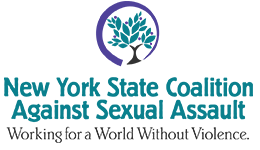Survivor’s Sanctuary
Created by the ‘me too’ Movement, Survivor’s Sanctuary is a self-guided healing platform intended to aid survivors in their healing journeys. You are invited to explore your healing through our three healing approaches MIND, BODY and INTEGRATIVE. You are invited to explore healing lessons from each approach in 5-minute, 15-minute and 25- minute suggested time increments. You choose your approach and you choose the experiences you want to engage in. No matter where you go on the site, you will find something that meets your unique needs as a survivor. Click here to access the Survivor’s Sanctuary.
A Toolkit for Survivors During COVID-19
Survivors of sexual assault are experiencing the deep impact of this moment in ways we could never have imagined. Those of us in abusive situations and those who are seeking therapy are struggling to get the support they need. Conditions that were already challenging are now exacerbated, and the needs of sexual assault survivors are being left out of the national dialogue in more ways than one. Click here to access A Toolkit for Survivors During COVID-19, created by the ‘me too.’ Movement.
Who Do I Tell? How Do I Tell? Toolkit
For individuals who have experienced or know someone who has experienced sexual assault, this toolkit provides question prompts and tips for deciding who to disclose to, and how. Click here to access the toolkit, created by the ‘me too.’ Movement.
Coping with Triggers
A “trigger” is a trauma reminder. It can be a feeling, a smell, a place, a topic, anything that engages our nervous system and prompts a survival response. It is a surprise emotion, a memory that our body holds, one that may feel like it comes out of nowhere. Click here to access the Coping with Triggers toolkit, created by the ‘me too.’ Movement.
Healing Justice Practice Spaces Toolkit
This “how-to” guide from Autumn Brown & Maryse Mitchell-Brody explains how to create an intentional healing justice practice space. The authors offer that a Healing Justice Practice Space (HJPS) is an all-gender, all-bodied, inclusive and accessible space for practicing and receiving healing that is built in partnership with social justice movement work and sites of political action. These spaces typically offer a wide variety of health and healing services, including (but not limited to) first aid, counseling and crisis support, mediation services, massage therapy, acupuncture, energy work, herbal therapy, divination, art therapy, nutritional counseling, and yoga. This thoughtful guide walks through the what, the who, and the how so that you might create your own HJPS within your community. Click here to access the toolkit, created by the ‘me too.’ Movement.
Books to Support Healing from Sexual Violence
Healing Honestly recently put together a list of books to support survivors’ healing from sexual violence. NYSCASA has sent some of these books to member rape crisis programs, including Love WITH Accountability: Digging Up the Roots of Child Sexual Abuse, Queering Sexual Violence: Radical Voices from Within the Anti-Violence Movement, and Pleasure Activism: The Politics of Feeling Good. Check out the full book list here.
Grounding and Self-Soothing Techniques
There are a great number of tools and resources to assist survivors with grounding and self-soothing as they move through their healing journey. Here are some resources recommended by NYSCASA staff:


